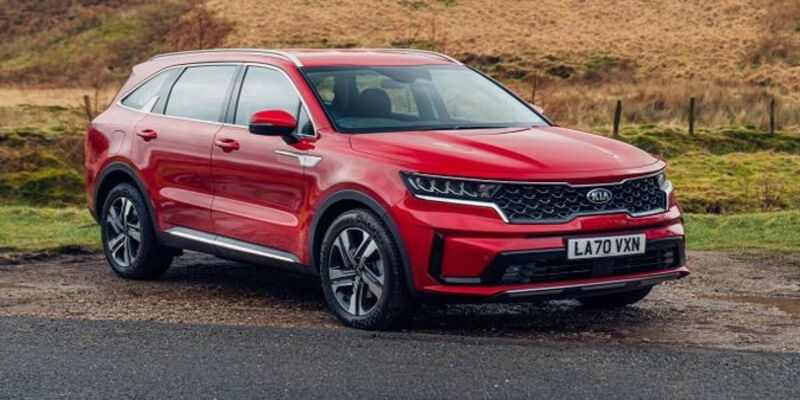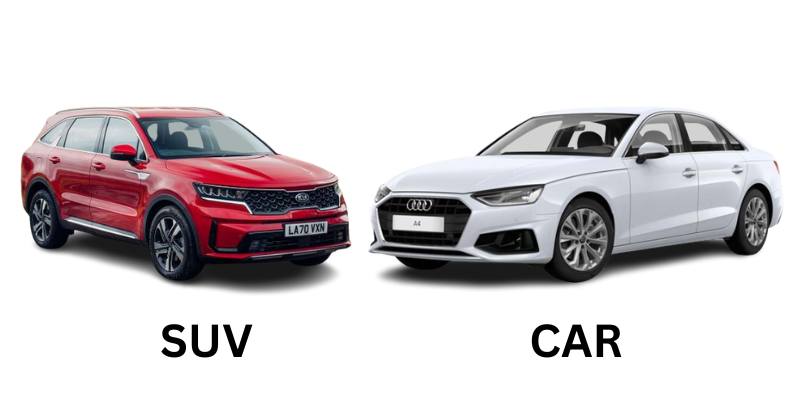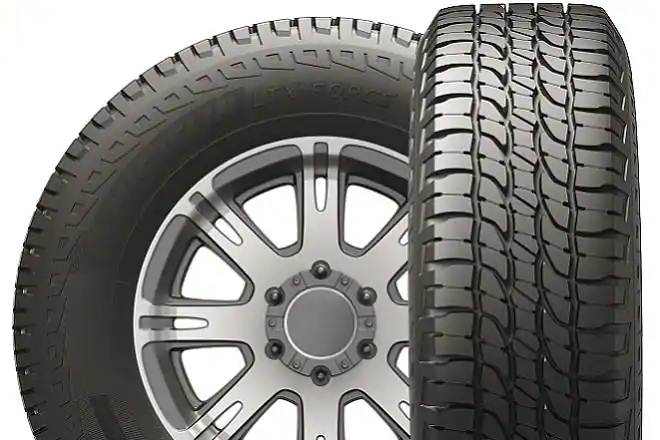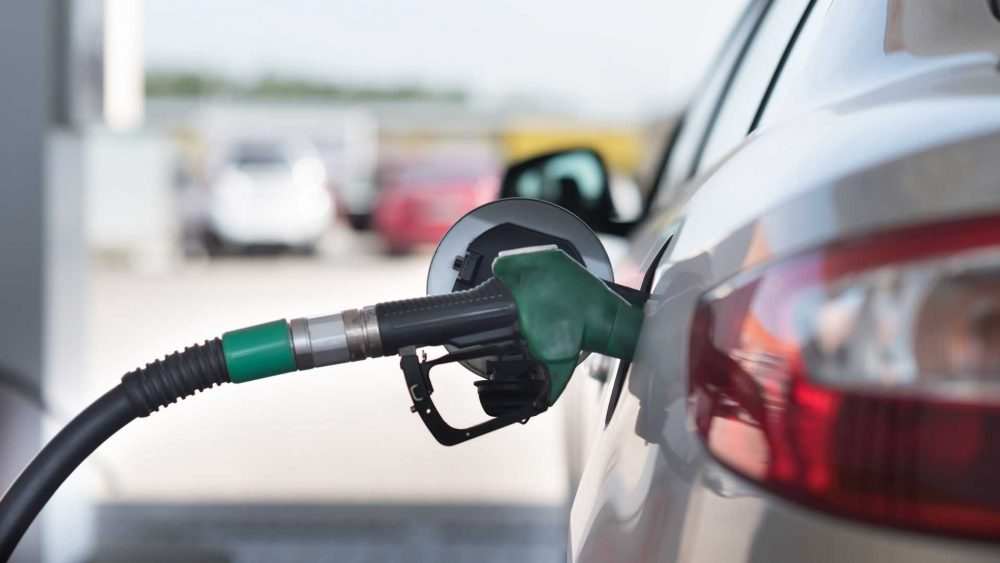Different types of vehicles require different types of tyres to ensure the best performance and safety on the road. Car tyres are designed for smaller and lighter vehicles, while SUV tyres are designed for larger and heavier vehicles. The size and weight of your vehicle can have a big impact on its performance, handling, and fuel efficiency, which is why it is important to choose the right tyres.
Car tyres and SUV tyres are made from different materials and have different tread patterns, which can affect their durability, traction, and ride comfort. In this article, we will explore the differences between car and SUV tyres in detail, so you can make an informed decision about which type of tyre is best for your vehicle.
Key difference between car and SUV tyres
Both types of tyres may look similar. They are designed to meet the specific needs of different types of vehicles and driving conditions. Here are the following differences between car and SUV tyres.
Size and Weight
The most significant difference between car and SUV tyres is their size and weight. SUVs are generally larger and heavier than cars. They require tyres that can handle their weight and size. SUV tyres tend to be wider and have a larger diameter than car tyres. They have a higher load index which means they can carry more weight.
Car tyres are designed for smaller and lighter vehicles. They tend to be narrower and have a smaller diameter than SUV tyres. Car tyres also have a lower load index than SUV tyres because they are not designed to carry as much weight.
Tread Pattern
The tread pattern refers to the design of the grooves and channels on the tyre’s surface, which helps the tyre grip the road and provide traction.
SUV tyres typically have a more aggressive tread pattern than car tyres. This is because SUVs are often used off-road or in harsh weather conditions. They require better traction in these situations. SUV tyres often have larger, deeper tread blocks and wider grooves to provide better grip and prevent hydroplaning.
Car tyres have a more symmetrical tread pattern with smaller grooves. This is because cars are typically used on paved roads and do not require as much traction as SUVs. Car tyres are designed to provide a smooth and quiet ride on paved roads, and their tread pattern reflects this.
Durability
SUV tyres are designed to withstand more wear and tear than car tyres because they are often used in harsher conditions. They have a more robust construction and thicker sidewalls to protect against damage from rocks and debris. SUV tyres are often made with more durable materials that can handle the weight and stress of a larger vehicle.
Car tyres are designed for smoother roads and lighter vehicles. They are not designed to withstand as much wear and tear as SUV tyres. Car tyres often have thinner sidewalls and are made with less durable materials.
Ride Comfort
SUV tyres tend to be stiffer and have a more aggressive tread pattern which can result in a rougher ride. This is because SUV tyres handle rougher terrain and provide better traction in harsh conditions.
Car tyres provide a smooth and comfortable ride on paved roads. They have a more symmetrical tread pattern and are typically made with softer materials. This results in a quieter and smoother ride for passengers.
Fuel Efficiency
SUVs are typically less fuel-efficient than cars because they are larger and heavier. SUV tyres are best for traction and durability rather than fuel efficiency. They often have a higher rolling resistance which can result in lower fuel efficiency.
Car tyres are typically designed with fuel efficiency in mind. They have a lower rolling resistance, which means they require less energy to move. This can help improve fuel efficiency and reduce carbon emissions.
Weather Performance
SUV tyres can handle harsh weather conditions, such as snow and mud. They have a more aggressive tread pattern that provides good traction on slippery surfaces.
Car tyres are designed to use on paved roads and may not perform as well in harsh weather conditions. While some car tyres can useable in snow and ice. They may not provide the same level of traction as SUV tyres.
Price
SUV tyres are generally more expensive than car tyres because they are larger and more durable. SUV tyres often require more frequent replacement because they are subjected to more wear and tear.
Car tyres are less expensive than SUV tyres because they are smaller and designed for lighter vehicles. Car tyres may last longer than SUV tyres because they are subjected to less wear and tear.
Conclusion
There are several key differences between car and SUV tyres that car owners should consider when choosing the right tyres for their vehicles. SUV tyres are designed for larger and heavier vehicles and are often more durable than car tyres. They also have a more aggressive tread pattern and are designed to handle harsh weather. Car tyres are for smaller and lighter vehicles and are less expensive.
When choosing between car and SUV tyres, it is important to consider factors such as size and weight, tread pattern, durability, ride comfort, fuel efficiency, weather performance, and cost. By taking these factors into account, car owners can choose the right tyres for their vehicles and ensure the best performance and safety on the road.
FAQs
How do I know if my tyres are suitable for my vehicle?
To ensure that your tyres are suitable for your vehicle, you should check the owner’s manual or consult with a tyre professional. They can help you determine the appropriate size, load rating, and speed rating for your vehicle.
How often should I replace my SUV tyres?
The lifespan of SUV tyres varies depending on factors such as driving conditions, frequency of use, and tyre maintenance. However, as a general rule, SUV tyres should be replaced every 50,000 miles or every six years, whichever comes first.
Can I mix and match different brands of tyres on my vehicle?
While it is not recommended to mix and match different brands of tyres on your vehicle. It is also important to ensure that the tyres have the same speed rating, load rating, and size to ensure good performance and safety on the road.
How often should I replace my car tyres?
The lifespan of car tyres also varies depending on driving conditions and maintenance. However, as a general rule, car tyres should be replaced every 50,000 miles or every six years, whichever comes first.
How can I ensure that my tyres last longer?
To ensure that your tyres last longer, you should maintain the correct tyre pressure, rotate your tyres regularly, and avoid overloading your vehicle. You should avoid harsh braking and acceleration, and drive at a reasonable speed to avoid excessive wear and tear on your tyres.



